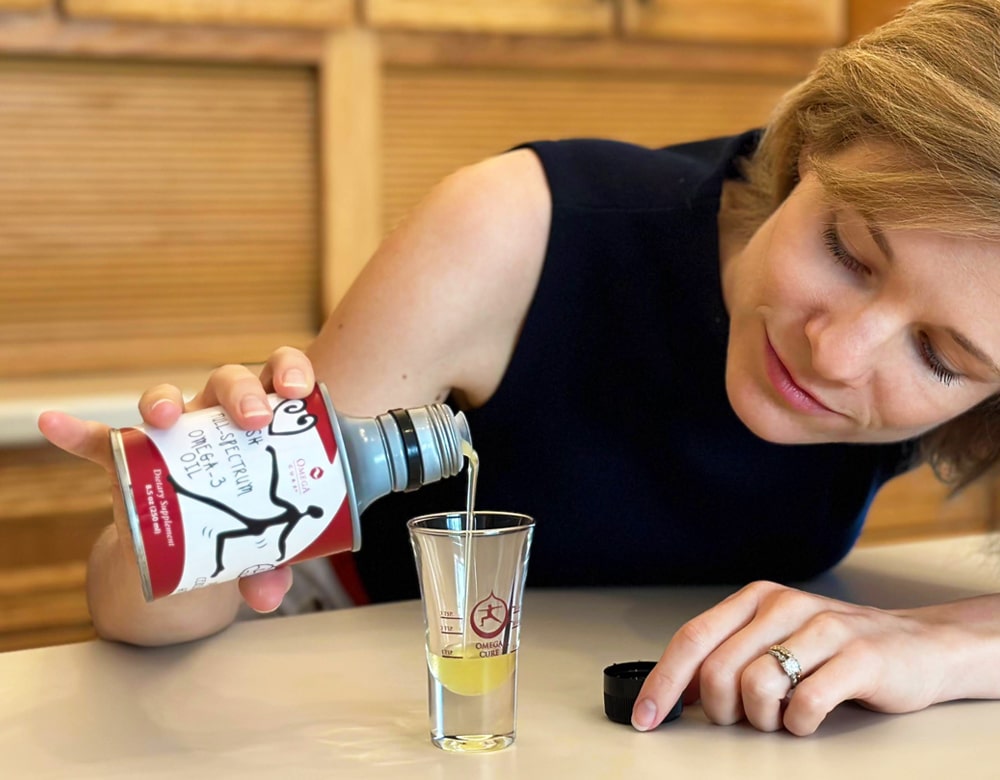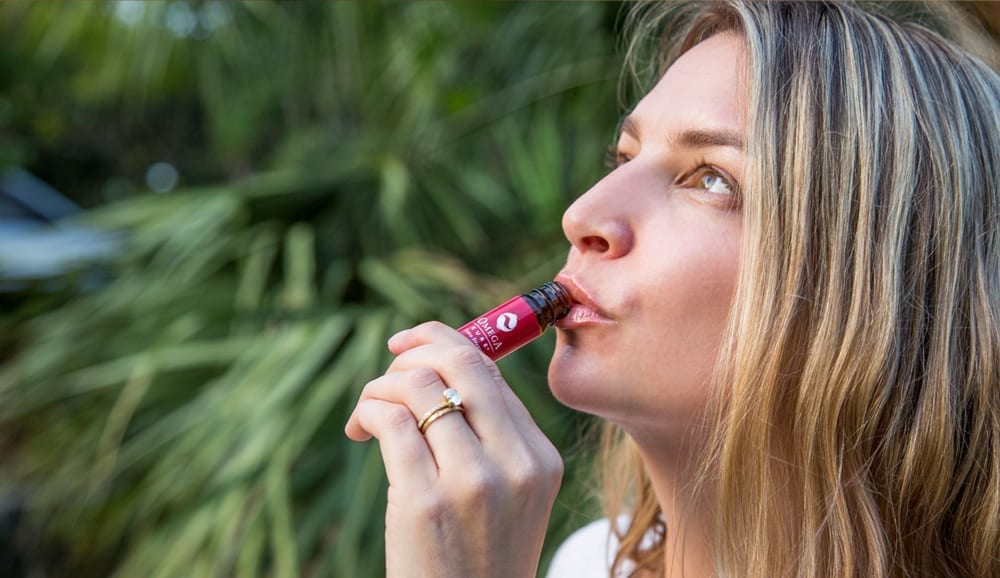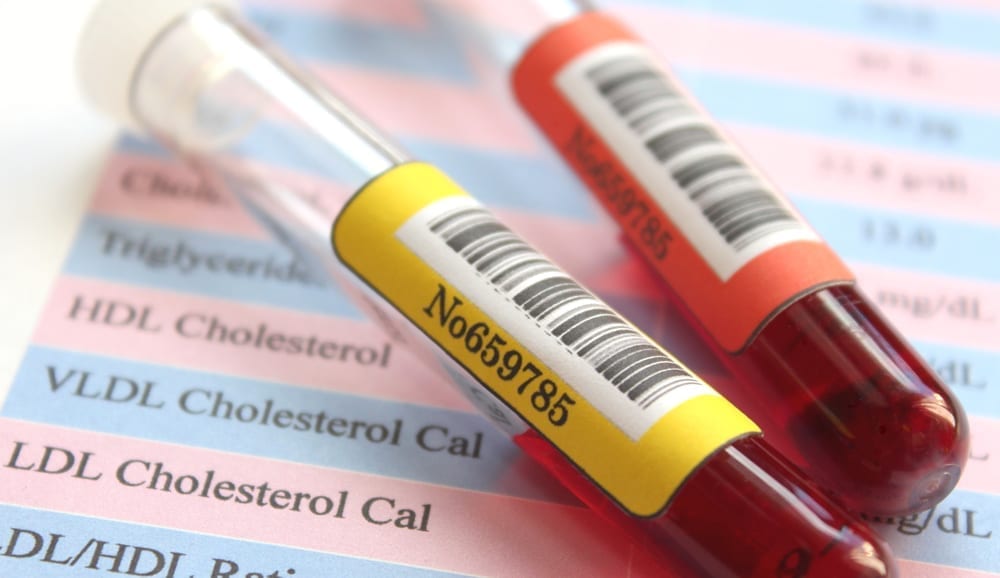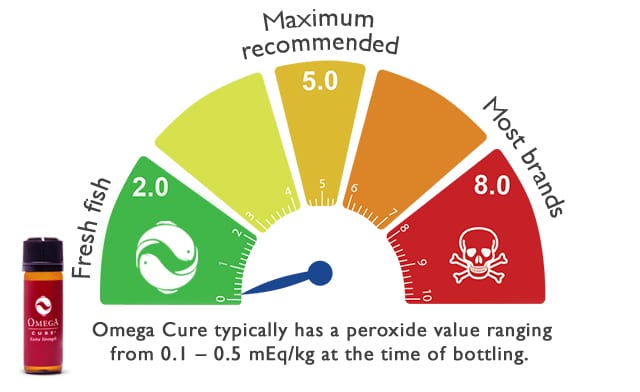Fresh Fish Oil: Why It Matters to Your Health
In 2012, we released our first series of blogs on the rampant rancid fish oil problem within the omega-3 industry. Since then, freshness has thankfully become a recognized topic, cropping up everywhere from the New York Times to the latest GOED summits.
Freshness should be a trending consumer conversation. Recent research demonstrates the superiority of fresh fish oil to rancid oil, and other studies indicate that excessively oxidized oil can be a serious health hazard. Still, it’s a subject that desperately needs more examination as the term “freshness” gets tossed around by journalists and manufacturers alike.
What qualifies as a fresh fish oil? Does it matter to human health, or is it simply a way to sell omega-3 supplements? Let’s take a look at what the research has to show us:
Comparing Fresh and Oxidized Oils
Researchers have been raising concerns about rancid fish oil supplements for some time now. In animal studies, consuming large quantities of oxidized fatty acids have been found to cause organ damage and atherosclerosis (1), among other health issues. Further studies have also suggested that oxidized fatty acids have a pro-inflammatory and mutagenic effect (2), and may even increase certain risk factors for Alzheimer’s disease (3).
Perhaps the most compelling evidence, however, comes from a small group of studies comparing the effects of non-oxidized vs. rancid fish oils. These studies build the strongest case for why it’s important to get a high quality omega-3 supplement.
While getting enough omega-3s during pregnancy is important, studies indicate that it’s also crucial to consider the quality of the omega-3 source.
Effects of Rancid Omega-3 Oil on Pregnancy
One 2016 rat study compared the effects of consuming fresh versus highly oxidized fish oil supplements on both mothers and newborn pups. Alarmingly, the researchers found that giving mothers oxidized fish oil increased maternal insulin resistance and newborn mortality rates. When the rat mothers were fed fresh fish oil, however, there was no increase in either rate (4).
One year later, the same group of researchers conducted a similar study, looking closer at the effects of just fresh fish oil. This time, the researchers found that the fresh oil prevented insulin resistance in the offspring — a positive outcome with potential application for fighting obesity and type II diabetes.
While the researchers concluded that taking non-oxidized, fresh fish oil during pregnancy had a positive long-term effect, they also lamented the lack of such supplements available to expectant mothers (5).
Relationship Between Cholesterol and Omega-3 Intake in Humans
To date, most studies looking at the impact of oxidized fatty acids have been conducted on animals. But a few studies have explored the effects on human health too.
A 2013 study, for instance, compared the results of women who consumed either less-oxidized omega-3 capsules, highly-oxidized omega-3 capsules, or no capsules. After 30 days, they measured the women’s triglyceride and cholesterol levels. The women who received the less-oxidized capsules had significantly reduced “bad” cholesterol levels. In contrast, the women in the highly-oxidized capsule group saw a negative impact on their cholesterol levels (6).
A second study of 54 British men and women found similar results: Fresh fish oil supplements provided a significant decrease in LDL and IDL cholesterol levels. Oxidized fish oil users, however, saw increases in these “bad” levels (7).
While looking at different health areas, these studies all found similar trends: Fresh fish oil delivered positive benefits. The rancid fish oil, however, did more harm than good.
Two studies to date show that freshness impacts the heart health benefits of omega-3 products.
Could Rancid Fish Oil Explain Mixed Omega-3 Results?
While this handful of studies don’t necessarily prove anything conclusively, they do raise important safety questions. Furthermore, they could also help explain why omega-3 studies deliver such a mixed bag of results (8, 9).
Alarmingly, independent surveys from Norway (10), New Zealand (1), South Africa (11), and Canada (12) have found that the majority of omega-3 supplements are rancid at the time of purchase. Therefore, it is likely that many researchers are also using rancid fish oils in their studies, potentially confounding the results. Unfortunately, this is hard to determine since – at the time of publication – very few research studies reference the oxidative status of their oil.
Varying Freshness Standards May Be the Culprit
Part of the confusion may lie in the fact that scientists haven’t adequately defined what a fresh or rancid fish oil is. Freshness standards for omega-3 products still haven’t been outlined by the FDA (13). In fact, companies can voluntarily choose to meet international standards, which are largely set by omega-3 trade organizations, like GOED.
As of today, most studies looking at the freshness levels of omega-3 products use the standards set by GOED and the Council for Responsible Nutrition (CRN) as their guide. GOED and CRN currently set their limit for the peroxide levels of omega-3 products at 5 mEq/kg. However, some researchers suggest that 2 mEq/kg would be a better upper limit, while others maintain that a truly fresh oil would have a peroxide value below 1 mEq/kg (15).
It is worth noting that few commercially available fish oils have a peroxide value below 2 mEq/kg (15). Since higher oxidation values are typically associated with ‘off flavors’, this also explains why the great majority of omega-3 products have a strong fishy taste and smell.
Omega Cure®’s peroxide value typically clocks in between 0.1 – 0.5 mEq/kg at the time of bottling – hence the absence of any fishy taste or smell.
Omega3 Innovations: Setting a Higher Standard for Freshness
Omega-3 freshness is a complicated subject, but if we’re going to provide people with excellent nutrition, then scientists, manufacturers, and consumers need to start having more open conversations.
At Omega3 Innovations, we provide the peroxide and anisidine values of our current Omega Cure batch, along with the date of bottling, on our products. You’ll find this information on the bottom of your Omega Cure bottles and Omega Cure Extra Strength boxes. Our intention is to provide our customers with a better idea of the quality of the oil they are putting in their bodies.
Since our liquid fish oils are shipped shortly after bottling, you’ll have a close reading of your oil’s freshness level when it arrives. But, as is the case with any omega-3 product, please be aware that oxidation levels change with time. The oil inside a fish oil capsule may have been fresh when it was first encapsulated, but after a few months of sitting on a shelf at room temperature, the oil’s peroxide value will likely have multiplied. Similarly, Omega Cure won’t last forever in your refrigerator. That’s why we encourage you to always continue to assess it with your taste buds.
You Deserve the Most Effective Omega-3 Supplement
If you have questions about any of our products, we encourage you to give us a call, email us, or leave a comment here. We look forward to hearing from you!
Try Exceptionally Fresh Omega Cure
Experience the Omega3 Innovations difference for yourself with the most effective fish oil supplement on the market.
Buy Now
References:
1. Albert, B. B. et al. (2015). Fish Oil Supplements in New Zealand are Highly Oxidised and Do Not Meet Label Content of N-3 PUFA. Scientific Reports, 5, 7928.
2. Wang, W., Yang, H., Johnson, D., Gensler, C., Decker, E., and Zhang, G. (2017). Chemistry and Biology of -3 PUFA Peroxidation-Derived Compounds, Prostaglandins Other Lipid Mediat (2016). Prostaglandins & Other Lipid Mediators, 132: 84 – 91.
3. Grimm, M.O. et al. (2016). Oxidized Docosahexaenoic Acid Species and Lipid Peroxidation Products Increase Amyloidogenic Amyloid Precursor Protein Processing. Neurodegenerative Diseases, 16(1-2): 44-54.
4. Albert, B.B. et al. (2016). Oxidized Fish Oil in Rat Pregnancy Causes High Newborn Mortality and Increases Maternal Insulin Resistance. American Journal of Physiology-Regulatory, Integrative, and Comparative Physiology, 311(3): R497-504.
5. Albert, B. B. et al. (2017). Fish Oil Supplementation to Rats Fed High-Fat Diet During Pregnancy Prevents Development of Impaired Insulin Sensitivity in Male Adult Offspring. Scientific Reports, 7(1), 5595.
6 García-Hernández, V.M., Gallar, M., Sánchez-Soriano, J., Micol, V., Roche, E., and García-García, E. (2013). Effect of Omega-3 Dietary Supplements with Different Oxidation Levels in the Lipidic Profile of Women: A Randomized Controlled Trial. International Journal of Food Sciences and Nutrition, 64(8): 993-1000.
7. Nair, U.B. Fresh Fish Oil Supplements are Better at Reducing Bad Cholesterol. Medical News Bulletin. August 5, 2017.
8. Turner, R., McLean, C.H., and Silvers, K.M. (2006). Are the Health Benefits of Fish Oils Limited by Products of Oxidation? Nutrition Research Reviews, 19(1): 53-62.
9. Albert, B.B., Cameron-Smith, D., Hofman, P.L., and Cutfield, W.S. (2013). Oxidation of Marine Omega-3 Supplements and Human Health. BioMed Research International, 2013, 464921.
10. Laupsa-Borge, J. (2012). Velg Ferske og Naturlige Omega-3 Produkter. Helsemagasinet: Vitenskap & Fornuft.
11. Opperman, M., and Benade, S. (2013). Analysis of the Omega-3 Fatty Acid Content of South African Fish Oil Supplements: A Follow-Up Study. Cardiovascular journal of Africa, 24(8): 297-302.
12. Jackowski, S. A. et al. (2015). Oxidation Levels of North American Over-the-Counter N-3 (Omega-3) Supplements and the Influence of Supplement Formulation and Delivery Form on Evaluating Oxidative Safety. Journal of Nutritional Science, 4, e30.
13. Miller, J.L. et al. (2019). A Peroxidized Omega-3-Enriched Polyunsaturated Diet Leads to Adipose and Metabolic Dysfunction. The Journal of Nutritional Biochemistry, 64: 50 – 60.
14. Halvorsen, B. L., & Blomhoff, R. (2011). Determination of Lipid Oxidation Products in Vegetable Oils and Marine Omega-3 Supplements. Food & Nutrition Research, 55.
Recent Posts
-
Dose, Joint Health, Omega-3
Omega-3 & Pain Relief: Finding the Best Strategy
Are you one among the 1 in 5 Americans grappling with chronic pain, as reported by the CDC [1]? If the thought of traditional pain medications and their potential side...3 months ago -
Eye Health, Omega-3
The Startling Link Between Skin Care and Eye Health
Dry eye complaints are on the rise worldwide. Many risk factors – including aging and increased computer use – help explain the increase. But there's another driver few people know...6 months ago -
Heart Health
Does Taking Fish Oil Lower Cholesterol?
Many people believe that incorporating omega-3s into their diet will solve their cholesterol woes. But the truth is much more nuanced; it's not as simple as taking a daily fish...1 year ago -
Immune Health, Sleep
Melatonin & COVID-19: Can This ‘Sleep Hormone’ Help?
It started with a runny nose and a slight cough. But when his 72-year-old wife tested positive for COVID-19, he got concerned. “Is there any research suggesting the supplements we...2 years ago -
Full-Spectrum Fish Oil, Omega-3
Is It Good to Store Fish Oil in the Freezer?
Fish oil is a great source of the omega-3 fatty acids we all need for good health. It’s also highly perishable. Consuming rancid fish oil can have negative health implications....2 years ago -
Omega-3
Our Favorite Omega-3 Fish Oil Benefits
Omega-3 fish oil certainly has a reputation for delivering a plethora of incredible benefits. And it’s true! Omega-3 fatty acids have been studied for a broad range of health conditions....2 years ago











